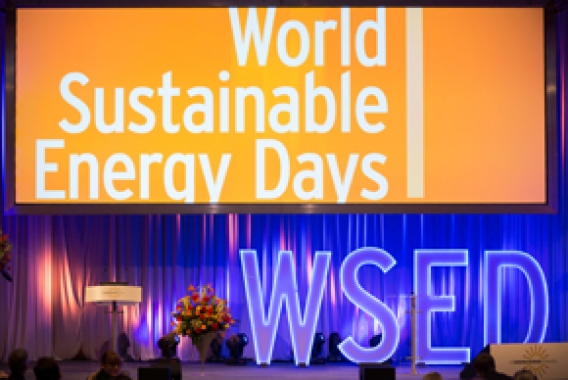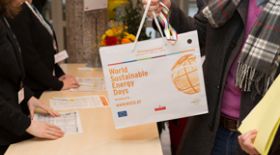Contributing to a fair, green energy transition
Housing Europe at World Sustainable Energy Days 2016
Wels, Austria, 26 February 2016 | Published in Energy
The World Sustainable Energy Days, one of the largest annual conferences in this field in Europe, offers a unique combination of events on sustainable energy. Housing Europe Deputy Secretary General, Julien Dijol participated in the expert dialogue session on "what works best to accelerate building renovation".
The panel discussion focused on how to increase the renovation rate in the building sector, including nearly Zero Energy Buildings (NZEB). Housing Europe highlighted ways to achieve this, while maintaining affordability for the tenants:
- Improvement through innovation. Innovation of processes such as Energiesprong, procurement models like Kombohus, but also innovation in skills, since the situation in Eastern Europe shows that skills for NZEB are not everywhere rooted.
-
Pragmatic approach in terms of objectives and energy efficiency requirements; it is also important to look at the level of neighborhoods, not only the building envelopes and it might be more relevant in some cases to focus on C02 emissions rather than only energy savings in buildings or energy efficiency of the individual equipments; eventually within the range of low energy buildings, the difference in terms of thermal comfort is small while the difference of costs is still important, in that case the best solution is not necessarily the highest standard in terms of energy performance.
- Access to low cost capital for renovation and new construction. We live in a time of abnormally low interest rates in many countries, but setting up intermediary bodies that could aggregate the needs and channel low cost funding is key.
At the same time the presentation reminded participants of the different responsibilities:
- Responsibility of the housing organisations to improve the most energy consuming dwellings and provide thermal comfort
- Responsibility of the residents to have an adequate use of energy
- Responsibility of the energy providers to provide more renewable energy
- Responsibility of the construction company to guarantee the energy performance and make reliable verification
- Responsibility of the policy makers to put in place a stable and flexible regulatory framework combined with financial incentives and initiatives to empower residents
